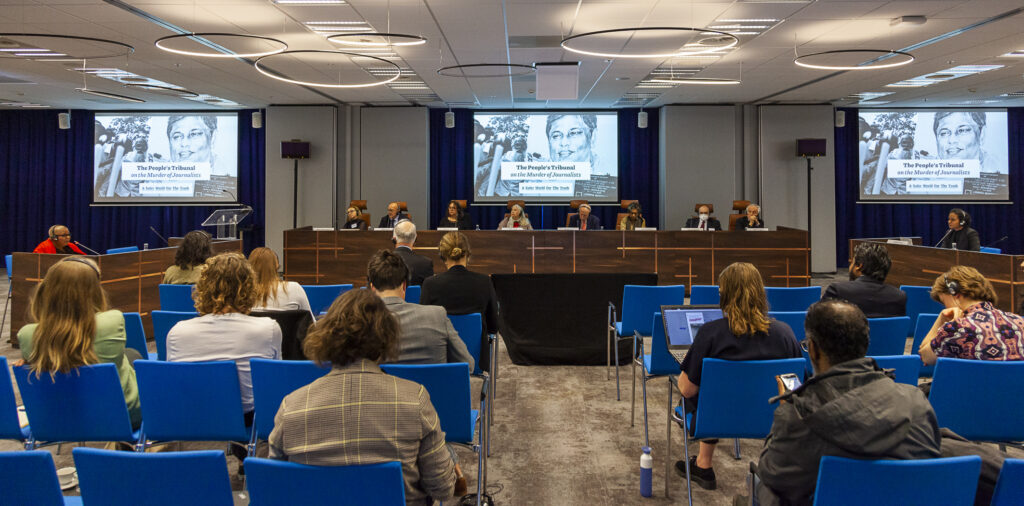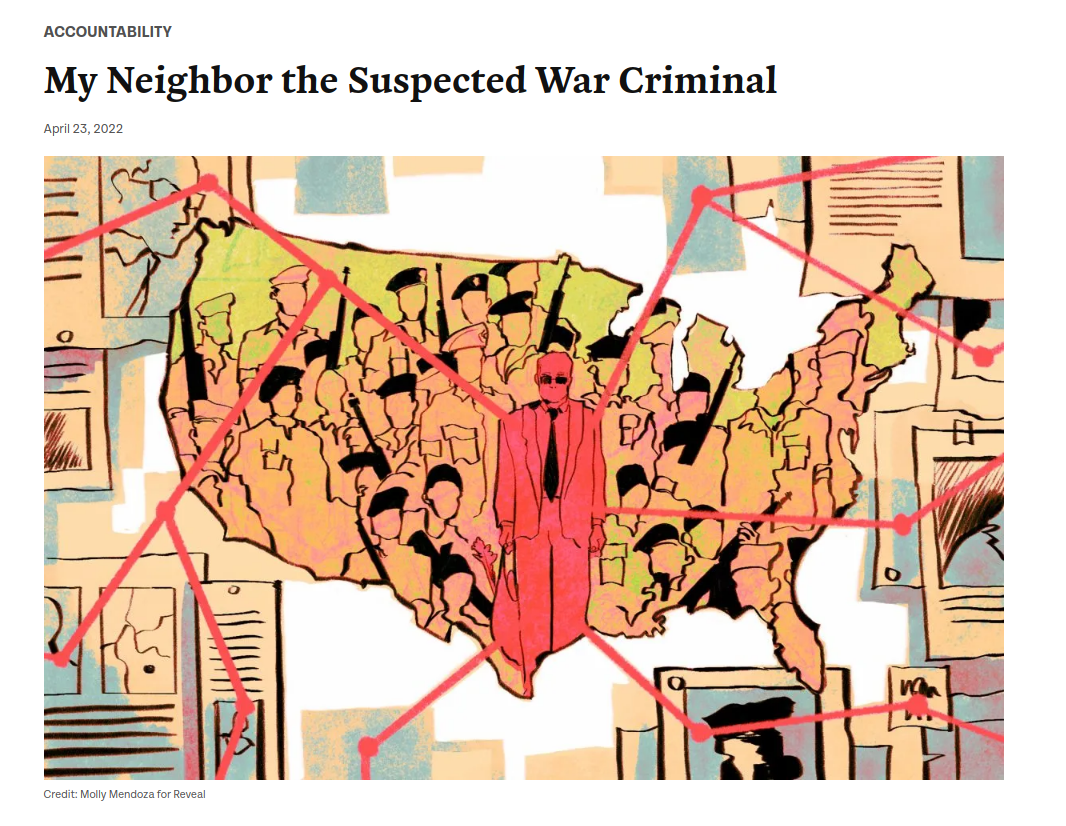This hearing was prepared together with the Center for Justice and Accountability (CJA).
The Government of Sri Lanka was officially notified about the Prosecution’s
indictment by the independent Permanent People’s Tribunal (PPT). The indictment alleges the government’s complicity in failing to protect Lasantha Wickrematunge. The government was invited to exercise its right of defense during the hearing. More information in the FAQ section.

The case of Lasantha Wickrematunge was heard at The People’s Tribunal on the Murder of Journalists. The hearing will take place on 12 and 13 May in The Hague from 09:00-17:00 on both days.
IMPACT SO FAR:
For this case hearing, a big part in accountability was the fact that the timing of the hearing was optimal. The government was under pressure due to the crisis, and the Tribunal gained a lot of attention from the Sri Lankan press.
We received a public statement from 54 public figures in Sri Lanka and 11 organizations that publicly endorsed it. This statement was remarkable, because finding people to speak at the hearing when we were organizing the hearing was very difficult because a lot of people did not want to participate in the hearing due to fear of intimidation by the current Rajapaksa government.
We hope that towards the judgment on the Sri Lanka case hearing we can add to the pressure on the president and that it will lead to justice, because the murder of Lasantha Wickrematunge is one of the biggest crimes committed in terms of press freedom, in the period that him and his brother Mahinda have had powerful positions.
TRANSLATION
To re-watch the hearing in Sinhala or Tamil, please go to: https://interprefy.interpret.world/loginlink?token=HqFC0DT9.
Re-watch day 1 of the hearing:
During the first day, the Prosecutor heard witnesses of the hearing on impunity for crimes against
journalists in Sri Lanka. Witnesses testified on specific groups of journalists
at risk, impunity for crimes against journalists, and the role of the State in the prevention and
investigation of these crimes.
The second day was dedicated to the murder of Lasantha Wickrematunge. The Prosecutor presented
the evidence collected and heard witnesses, who spoke about Lasantha Wickrematunge’s life
and work, the circumstances of his death and the State investigation of the murder.
Podcast about Lasantha Wickrematunge and the pursuit for justice in the United States
About Lasantha Wickrematunge:

Lasantha Wickrematunge was a leading independent journalist covering the Sri Lankan civil war.
He co-founded an English-language weekly called the Sunday Leader, which he ran from 1994 until his death. He became a government target due to his reportage on senior officials during the civil war.
From 2006 onwards, he particularly came on a collision course with the brothers Mahinda Rajapaksa, then serving as President, and Gotabaya Rajapaksa, then serving as Secretary of Defence.
During their terms, they were responsible for acts including torture, extrajudicial killing, and failure to investigate gross human rights violations. Journalists and political dissidents were specifically targeted.
Lasantha was assassinated on 8 January 2009 by a group of black-clad motor cyclists on his drive to work. He died in the hospital a few hours after the attack. Three days later, The Sunday Leader posted the posthumous editorial ‘Letter from the Grave’, in which Lasantha had foreseen his own death and attributed it to the government.
“When finally I am killed, it will be the Government that kills me. I hope my assassination will be seen not as a defeat of freedom but an inspiration for those who survive to step up their efforts. Indeed, I hope that it will help galvanise forces that will usher in a new era of human liberty in our beloved motherland.”
– Lasantha Wickrematunge’s posthumous editorial, published three days after his assassination.
The government has failed to undertake a credible investigation into the murder. Instead, witnesses were intimidated, investigation efforts were obstructed, and evidence was tampered with. CJA brought these violations as claims under universal jurisdiction in the U.S., but litigation was halted when Gotabaya Rajapaksa was elected as president and enjoyed immunity in that capacity.
